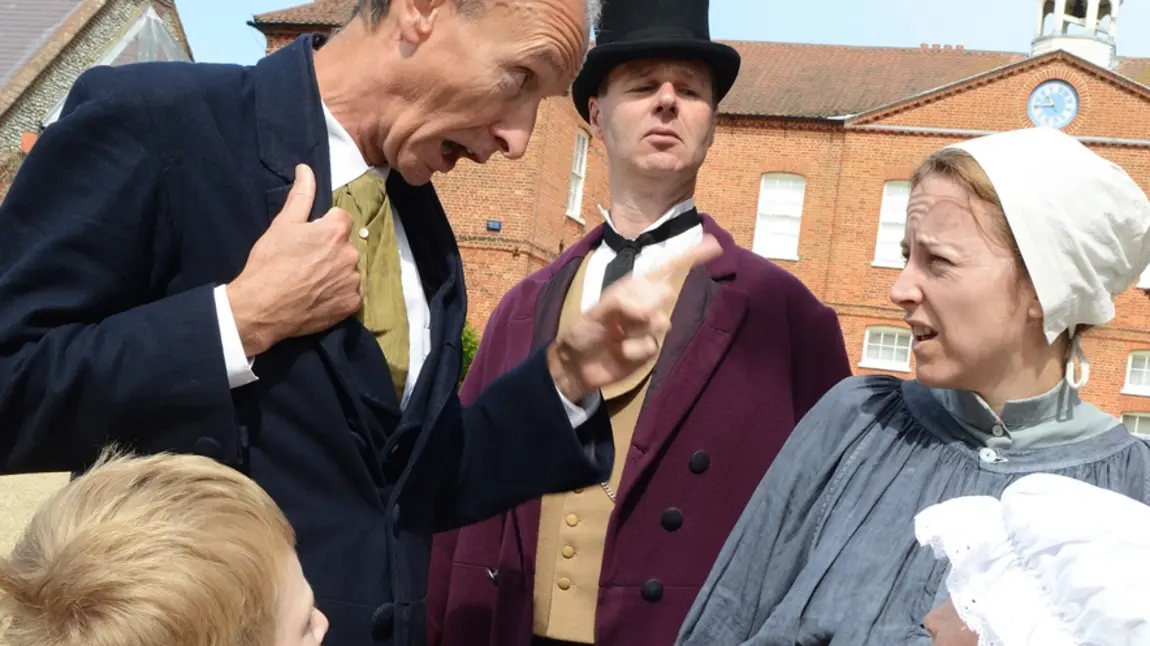Palace or prison? Voices from the Workhouse project secures Lottery funding

The project will also explore the lives of those living in the shadow of the controversial institution and challenge popular misconceptions. Attitudes to rural poverty, those in receipt of benefits, mental health and the treatment of the sick or elderly in 19th century Norfolk – and the relevance of these themes today, is another key focus of the project.
New displays and interpretation will showcase Norfolk Museums Service’s nationally significant collection of more than 1,000 original workhouse objects. From the bells that woke the inmates and the clocks that regulated their lives, to the notices that enforced rules and the plates from which they ate their strict diet, visitors will gain a fascinating insight into the daily lives of those who lived and worked at Gressenhall.
Gressenhall was one of 22 workhouses across Norfolk and one of hundreds across the UK. A major part of the project will see many of the nation’s workhouse museums, as well as researchers and archives, brought together for the first time as a National Workhouse Network, allowing information and best practice to be shared. Project organisers hope this will be the first step towards forging connections with similar institutions internationally.
Two trainees will be recruited to help carry out the project. The 12-month placements in heritage project management and collections management complement the museum’s successful involvement in the Norfolk Museums Service Teaching Museum programme funded by Arts Council England and an HLF-funded Skills for the Future project which was awarded more than £1.1million in 2012.
Robyn Llewellyn, Head of Heritage Lottery Fund, East of England, said: “Voices from the Workhouse explores themes that are still so relevant today and will give Gressenhall’s nationally significant collection a new lease of life. Thanks to money raised by National Lottery players, more than 4,000 people have had traineeships in HLF-funded projects and we’re delighted to see that the success of Gressenhall’s Skills for the Future scheme has encouraged the creation of two new positions for this project.”
Cllr Paul Smyth, Chairman of the Communities at Norfolk County Council, said: “Gressenhall is already one of the best historical resources in Norfolk, and this HLF award will help develop it into a national centre for workhouse interpretation, enabling its wealth of original stories, archives and artefacts to reveal intriguing insights into the lives of some of the people who lived and worked there.
“This investment will provide new opportunities for Gressenhall to work with different groups across the county to enrich our understanding of Norfolk's heritage, and it should also bring welcome benefits to the local tourist economy."
Gressenhall was opened as a House of Industry in 1777 before becoming a workhouse in 1836. The building was designed as a solution to the age old problem of how communities can care for their poor. The House of Industry provided work, food and a home for those unable to provide for themselves. But it was an expensive solution.
In 1834 the New Poor Law introduced a harsh regime that saw support withdrawn for those who refused to enter. Life was hard for the thousands of people who lived and worked in one of these institutions, rules were strict and misbehaviour punished. However basic needs were met and access to healthcare and education meant many were better off inside a workhouse than out.
Voices from the Workhouse will reveal the real stories of the people who lived, worked and ruled Gressenhall workhouse. From Harriet Kettle who was sent to prison five times and set fire to Gressenhall in 1858, to William Seaman an orphan who became the workhouse’s first pupil teacher, these mixed experiences were revealed in original accounts recently uncovered thanks to a research programme involving volunteers, The National Archives and Norfolk Record Office.
A dedicated website and a range of activities ranging from pauper encounters to immersive learning programmes will help to bring this important part of Norfolk’s history to life.
Notes to editors
About Gressenhall Farm and Workhouse
Gressenhall Farm and Workhouse is part of Norfolk Museums Service (NMS), a multi award winning service comprising ten museums and a study centre. It is one of only 21 Major Partner Museums in the country receiving substantial revenue investment from Arts Council England. Norfolk Museums Service is a partnership between Norfolk County Council and Norfolk's district councils, funded through council tax, earned income and grants.
Further information
Rebecca Lamm, HLF press office, on tel: 020 7591 6245 or email: Rebecca.Lamm@hlf.org.uk.